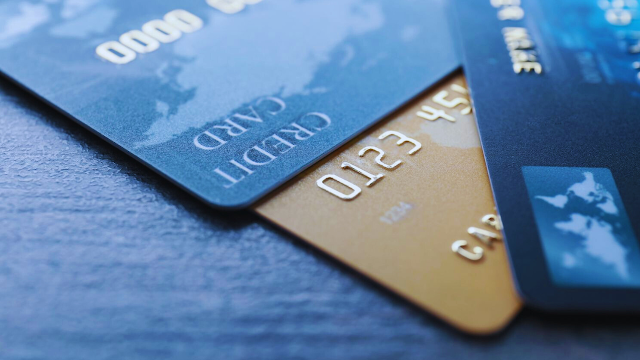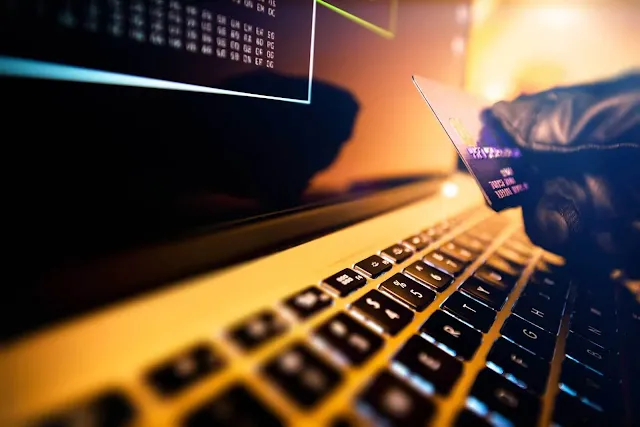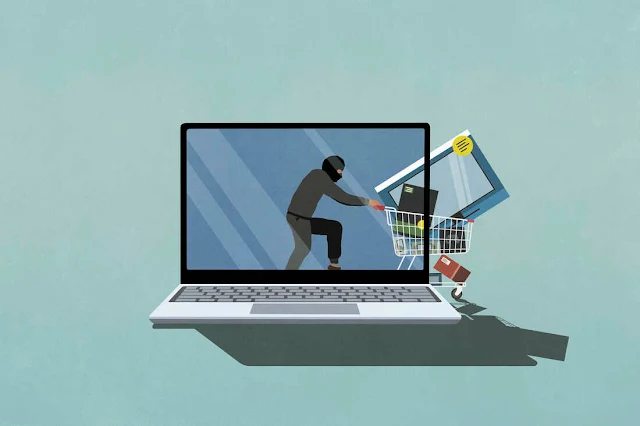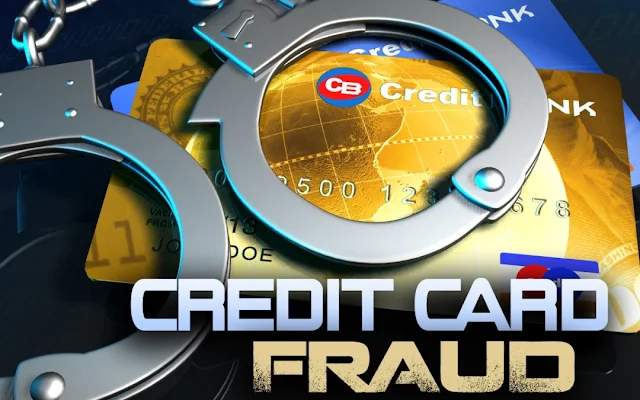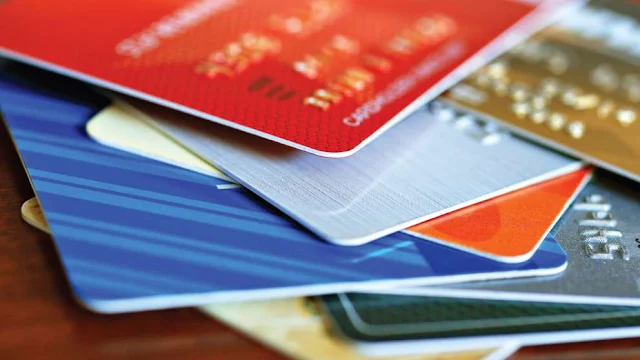Have you ever experienced the perplexing situation of discovering an unexpected charge on your credit card statement? It's a situation that can leave you feeling both frustrated and concerned about the security of your financial information. In this article, we will shed light on the mystery of unauthorized charges on your credit card and discuss what steps you can take to resolve the issue and prevent it from happening again. So, grab a cup of coffee, sit back, and let's unravel this puzzling case together!
Causes of Unauthorized Charges
Lost or stolen card
One of the main causes of unauthorized charges on your credit card is when your card is lost or stolen. If someone gets a hold of your card, they can easily make purchases without your knowledge or consent. It's crucial to always keep an eye on your card and report it immediately if it goes missing.
Card skimming
Card skimming is another common method used by fraudsters to steal your card information and make unauthorized charges. They typically place a skimming device on ATMs or card readers, which captures your card details when you use it. It's essential to be vigilant and check for any suspicious or loose attachments on ATMs or payment terminals.
Phishing scams
Phishing scams are becoming increasingly sophisticated and can deceive even the most cautious individuals. In these scams, fraudsters often send emails or messages pretending to be a legitimate organization, such as your bank or a reputable online retailer. They trick you into revealing sensitive information, such as your credit card details, which they then use to make unauthorized charges.
Data breaches
Data breaches occur when hackers gain unauthorized access to a company's database containing customer information. These breaches expose your credit card details to potential theft and result in unauthorized charges. It's important to monitor news reports and take necessary precautions, such as updating your passwords regularly, to protect yourself from the aftermath of data breaches.
Friendly fraud
Friendly fraud is an unfortunate phenomenon where individuals intentionally make unauthorized charges and then claim they were fraudulent to seek reimbursement. This kind of fraud can be difficult to prevent as it involves someone close to you or someone you trust. It's crucial to maintain open communication with your family members or other cardholders to avoid misunderstandings and prevent friendly fraud.
Identifying Unauthorized Charges
Reviewing your credit card statement
To identify unauthorized charges on your credit card, it's essential to regularly review your credit card statement. Look for any unfamiliar transactions or charges that you don't recognize. If you notice anything suspicious, take immediate action to investigate further and resolve the issue.
Monitoring your online accounts
Monitoring your online accounts is crucial in detecting unauthorized charges. Keep a close eye on your account activity and ensure there are no transactions that you didn't initiate. Regularly log in to your online banking or credit card account to stay informed about your account's activity and spot any discrepancies.
Receiving fraud alerts
Many credit card issuers provide fraud alerts as an additional security measure. These alerts notify you of any suspicious activity detected on your card. If you receive a fraud alert, take it seriously and contact your credit card company immediately to verify the charges and take necessary action.
Checking for unfamiliar merchants
When reviewing your credit card statement or online account activity, check for any unfamiliar merchants or businesses. If you spot transactions from merchants you don't recognize or haven't patronized, it could be an indication of unauthorized charges. Investigate further and report it promptly to your credit card company.
Verifying recurring charges
Recurring charges, such as subscriptions or membership fees, can sometimes go unnoticed. To prevent unauthorized recurring charges, regularly review your credit card statements and verify the legitimacy of each charge. If you encounter any recurring charges that you didn't authorize, contact the merchant immediately to cancel the subscription or membership.
Taking Immediate Action
Contacting your credit card company
If you identify unauthorized charges on your credit card, the first step is to contact your credit card company immediately. Most credit card companies have a dedicated hotline for reporting fraud and unauthorized charges. Inform them about the unauthorized charges, provide all necessary details, and follow their instructions to resolve the issue.
Freezing your card
To prevent further unauthorized charges, you can request your credit card company to freeze your card temporarily. By doing so, no new charges can be made using your card until you unfreeze it. Freezing your card can give you peace of mind while you work with your credit card company to resolve the unauthorized charges.
Filing a police report
If you believe your credit card has been used fraudulently, it's advisable to file a police report. Contact your local law enforcement agency and provide them with all the relevant details about the unauthorized charges. Having a police report can help strengthen your case when disputing the charges and can aid in the investigation process.
Notifying the merchant
In cases where you can identify the merchant involved in the unauthorized charges, it's important to notify them about the fraudulent activity. Provide them with the details of the transaction, explain that it was unauthorized, and request a refund or cancellation of the transaction. Cooperating with the merchant can help resolve the issue more efficiently.
Requesting fraud protection
Some credit card companies offer additional fraud protection services for their customers. These services may include identity theft protection, credit monitoring, or reimbursement for certain fraudulent charges. If your credit card company provides such services, consider opting for them to enhance your protection against unauthorized charges.
Investigating Unauthorized Charges
Cooperating with your credit card company
During the investigation of unauthorized charges, it's crucial to cooperate fully with your credit card company. Provide them with any requested information or documentation promptly. Answer their questions and follow their instructions diligently to ensure a smooth investigation process.
Providing necessary documentation
To support your claim of unauthorized charges, gather any relevant documentation or evidence. This may include copies of your credit card statements, receipts, or any communication with the merchant or credit card company regarding the unauthorized charges. Having comprehensive documentation can strengthen your case during the investigation.
Tracking your communication
Keep a record of all communication with your credit card company, the merchant, or any other parties involved in resolving the unauthorized charges. This includes dates, times, names of representatives, and the content of the conversations or emails. Staying organized and maintaining a log of your communication can help you stay on top of the situation and provide valuable evidence if needed.
Understanding dispute resolution process
Each credit card company has its own dispute resolution process for handling unauthorized charges. Familiarize yourself with the specific process of your credit card company, including any deadlines or requirements. Understanding the dispute resolution process can help you navigate the investigation process effectively and increase your chances of a favorable outcome.
Seeking legal advice if needed
If the unauthorized charges are significant or the investigation process becomes complicated, it may be wise to seek legal advice. An attorney specializing in consumer protection or credit card fraud can provide valuable guidance and ensure your rights are protected. They can assist you in navigating the legal complexities and help you seek appropriate compensation if necessary.
Recovering from Unauthorized Charges
Monitoring your credit reports
Even after resolving unauthorized charges, it's crucial to continue monitoring your credit reports. Unauthorized charges can sometimes lead to identity theft or other fraudulent activities. Regularly check your credit reports for any suspicious or unauthorized accounts opened in your name. If you notice anything unusual, report it to the credit reporting agencies immediately.
Disputing fraudulent charges
Disputing fraudulent charges is an essential step in recovering from unauthorized charges. Work closely with your credit card company to provide all necessary documentation and information to support your dispute. Follow up regularly to ensure the dispute progresses and the unauthorized charges are properly removed from your account.
Updating your account information
Since unauthorized charges may involve compromised card information, it's advisable to update your account information after resolving the issue. Request a new credit card number from your credit card company and update any automatic payments or subscriptions tied to the old card. Updating your account information adds an extra layer of security and reduces the risk of future unauthorized charges.
Implementing additional security measures
To protect yourself from future unauthorized charges, consider implementing additional security measures. Enable fraud alerts on your credit card or use credit monitoring services to receive timely notifications of any suspicious activity. Regularly update your passwords, use two-factor authentication where possible, and be cautious with sharing your card information online or over the phone.
Seeking reimbursement
If you have suffered financial losses due to unauthorized charges, inquire with your credit card company about eligibility for reimbursement. Depending on the circumstances and your credit card company's policies, you may be entitled to reimbursement for any fraudulent charges incurred. Be sure to provide all necessary documentation to support your claim for reimbursement.
Protecting Yourself from Future Unauthorized Charges
Using secure payment methods
When making online purchases or providing your credit card information, always use secure payment methods. Look for trustworthy payment gateways or websites that have encryption protocols in place to protect your personal and financial information. Avoid entering your credit card details on suspicious or unfamiliar websites.
Regularly updating passwords
Regularly updating your passwords is an effective way to protect yourself from unauthorized charges. Choose strong, unique passwords for each of your online accounts, including your credit card account. Use a combination of letters, numbers, and special characters, and avoid using easily guessable information such as your name or birthdate.
Avoiding suspicious websites and emails
Be cautious when clicking on links in emails or visiting unfamiliar websites. Fraudsters often use phishing techniques to trick you into revealing your credit card information. Avoid clicking on suspicious links or downloading attachments from unknown sources. Be wary of emails that ask for personal or financial information, even if they appear to be from a reputable organization.
Enabling two-factor authentication
Two-factor authentication provides an additional layer of security for your online accounts, including your credit card account. Enable two-factor authentication whenever possible, as it requires not only your password but also a second verification step, such as a unique code sent to your mobile device. This extra step can prevent unauthorized access to your accounts.
Being cautious with sharing card information
Exercise caution when sharing your credit card information, both offline and online. Only provide your credit card details to trusted and reputable merchants. When making purchases in person, ensure your card is only swiped or inserted into legitimate card readers. Be cautious when sharing your card information over the phone and verify the legitimacy of the person or organization you are providing it to.
Understanding Credit Card Fraud Laws
Federal laws and regulations
Various federal laws and regulations protect consumers from credit card fraud. These laws outline the responsibilities of credit card issuers, merchants, and cardholders in cases of unauthorized charges. Familiarize yourself with the applicable laws in your country to understand your rights and the safeguards in place to protect you.
Responsibilities of the cardholder
As a credit cardholder, it's important to understand your responsibilities in preventing and reporting unauthorized charges. This includes promptly reporting lost or stolen cards, regularly monitoring your account activity, keeping your card information secure, and cooperating fully with your credit card company during investigations.
Rights and protections for consumers
Credit card fraud laws provide certain rights and protections for consumers who fall victim to unauthorized charges. These rights include the right to dispute charges, the right to limit liability, and the right to a timely investigation of the unauthorized charges. Understanding and exercising these rights can help ensure you receive the necessary support and protection as a victim of credit card fraud.
Dispute resolution options
Credit card fraud laws often provide dispute resolution options for cardholders and credit card companies. These options may include mediation, arbitration, or a formal legal process. Familiarize yourself with the dispute resolution options available to you and choose the most suitable approach to resolve disputes related to unauthorized charges.
Liability limitations
Credit card fraud laws typically limit the liability of cardholders for unauthorized charges. The maximum liability you may be responsible for depends on the specific circumstances and how promptly you report the unauthorized charges. Understand the liability limitations imposed by your credit card company and ensure you take the necessary steps to minimize your liability.
Common Misconceptions about Unauthorized Charges
Assuming it's a mistake
One common misconception about unauthorized charges is assuming that they are simply mistakes made by the credit card company or the merchant. While errors can occur, it's essential to thoroughly investigate any charges you don't recognize. Don't dismiss unauthorized charges as a simple mistake without proper investigation and reporting.
Blaming the credit card company
Another misconception is blaming the credit card company for unauthorized charges. While credit card companies have a responsibility to protect their customers from fraud, it's important to remember that they are also victims of fraud. Work together with your credit card company to resolve the issue rather than assuming they are solely to blame.
Ignoring small unauthorized charges
Some individuals tend to ignore small unauthorized charges, believing they are insignificant or not worth the hassle of reporting. However, even small unauthorized charges should be taken seriously as they can be a sign of fraudulent activity. Investigate and report any unauthorized charge, regardless of the amount, to protect yourself from further fraudulent activity.
Thinking it won't happen to you
Many people fall into the trap of thinking that unauthorized charges won't happen to them. However, credit card fraud can happen to anyone. It's important to take proactive measures to protect yourself and stay vigilant in monitoring your credit card activity. Do not underestimate the importance of being proactive in preventing and detecting unauthorized charges.
Believing all online transactions are secure
While advancements in technology have made online transactions more secure, it's crucial to understand that not all online transactions are foolproof. Fraudsters continually develop new methods to exploit vulnerabilities. Exercise caution when making online purchases and take necessary precautions to protect your credit card information, even on seemingly secure websites.
Preventing Unauthorized Charges during Travel
Notifying your credit card company
If you plan to travel, it's essential to notify your credit card company in advance. Inform them about your travel dates and destinations to avoid any potential disruptions in the usage of your card. By notifying your credit card company, you reduce the chances of your card being flagged for suspicious activity and experiencing unnecessary declined transactions.
Using secure ATMs
When traveling, be cautious when using ATMs to withdraw cash. Use ATMs located in secure and well-lit areas, such as inside banks, and avoid standalone ATMs in secluded or unpopulated areas. Check for any signs of tampering or suspicious devices attached to the ATM before inserting your card.
Avoiding public Wi-Fi for financial transactions
Using public Wi-Fi networks when making financial transactions, such as online shopping or accessing your credit card account, can pose significant security risks. Public Wi-Fi networks are often unsecured, making it easier for hackers to intercept your data. Whenever possible, use a trusted and secure internet connection or a virtual private network (VPN) when conducting financial transactions.
Keeping an eye on your cards
While traveling, it's important to keep a close eye on your credit cards at all times. Avoid leaving your card unattended or handing it to someone who may have ulterior motives. Ensure your card is returned to you after each transaction and regularly check that you still have possession of all your cards.
Safely storing card information
When traveling, take precautions to securely store your credit card information. Avoid carrying unnecessary documents or cards that contain sensitive data. Consider leaving backup credit cards in a secure location and carrying only the necessary cards with you. Keep your cards and any documents with card details in a secure wallet or money belt close to your body to minimize the risk of theft.
Additional Resources
Credit card company support
When dealing with unauthorized charges, your credit card company should be your first point of contact. They can provide guidance, assistance, and support throughout the process. Contact your credit card company's customer service or review their website for resources related to unauthorized charges and fraud prevention.
Consumer protection agencies
Consumer protection agencies, both at the national and local levels, can provide valuable resources and information regarding unauthorized charges and credit card fraud. These agencies often maintain websites or helplines where you can report fraudulent activities, seek advice, and educate yourself on best practices for protecting your credit card information.
Credit monitoring services
Consider utilizing credit monitoring services that can provide ongoing monitoring of your credit reports, alert you of any suspicious activity, and help you detect unauthorized charges at an early stage. These services can provide an additional layer of protection and peace of mind when it comes to monitoring your credit card activity.
Identity theft assistance programs
In cases where unauthorized charges are linked to identity theft, identity theft assistance programs can provide valuable support. These programs often offer resources, guidance, and tools to help victims of identity theft recover their identity, resolve any related issues, and prevent future occurrences.
Government resources
Government agencies often have dedicated resources and information related to unauthorized charges, credit card fraud, and consumer protection. Visit your government's official website or contact the appropriate agency for access to helpful resources, tips, and advice on protecting yourself from unauthorized charges and resolving any related issues.
By taking proactive steps to protect your credit card information, monitoring your accounts, and understanding your rights and responsibilities as a cardholder, you can minimize the risk of unauthorized charges and keep your finances secure. Remember to stay vigilant, report any suspicious activities promptly, and take immediate action to prevent or recover from unauthorized charges.

